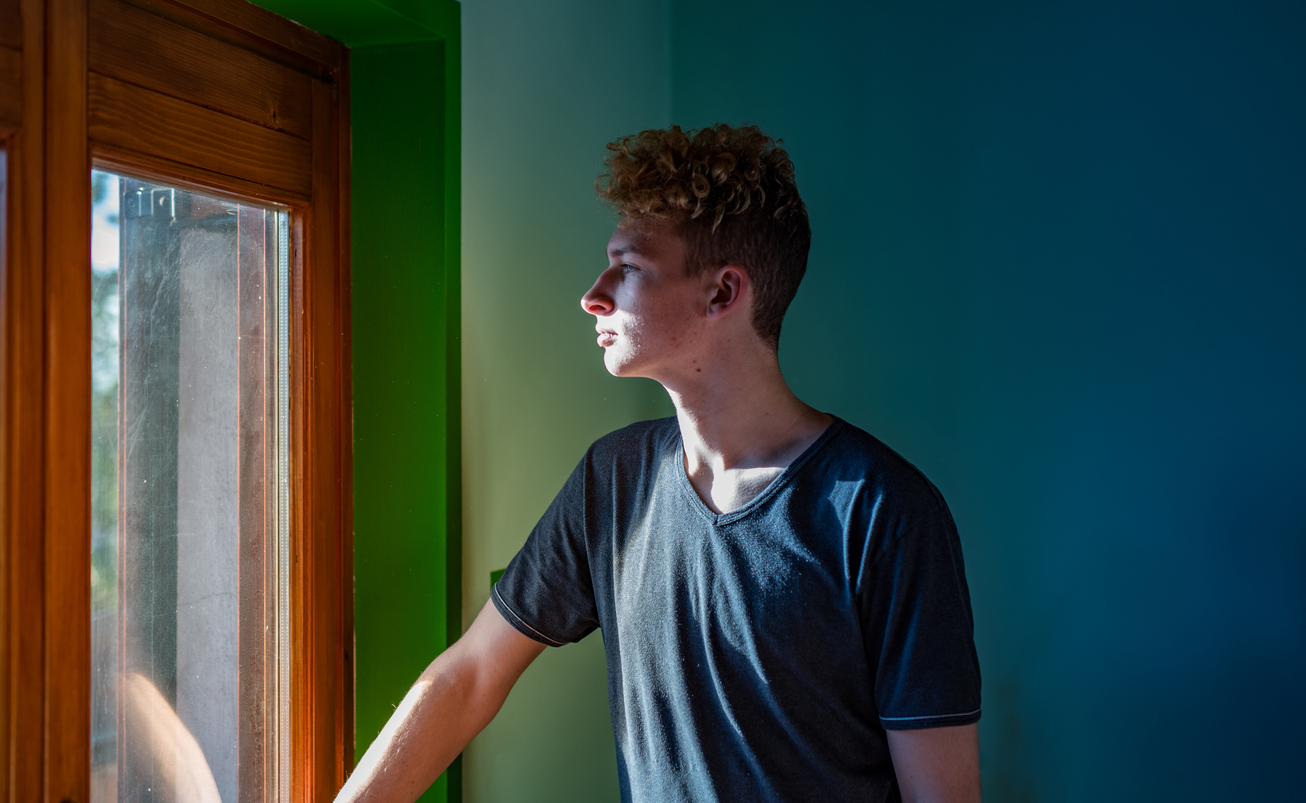This week, most of my friends are packing up children for college. I check in with them, send them love and safe travels, tell them I’m here to meet for coffee when they get back from dropoff. I look ahead and imagine what I may feel in two years, when my younger child, now entering junior year, heads away from home.
I know that grief might come up for me this week, a flash of what my older son George, who is 19, might have looked like on campus. George, who has an intellectual disability, severe autism, and bipolar disorder, attends a residential school and comes home on weekends
Right now, we are working hard to get the services and support that George will need to live the most meaningful life for him, a life full of making art and music that he loves, a life in community and also as part of our family: his adult life. Most people, I’ve discovered, have never been close to a person with an intellectual disability and are not familiar with what happens when young people transition out of the school system. Before our parenting journey with George, I had no idea about how our society supports adults with intellectual and other disabilities.
I share about the challenges navigating systems that provide support for my son with my friends and family-but it’s hard to grasp the brokenness of systems from the outside. For example, my son will need a Medicaid waiver so that he can get the housing he needs but the waiting list in Pennsylvania where we live is enormous.
My friends are often shocked when I tell them about these struggles. I turn to other parents going through this same thing, the tribe I’ve developed of fellow parents, so I don’t feel so alone.
***
About a month ago, a close friend invited me, along with other of her friends, to a ritual to mark her daughter’s leaving for college.
She created a beautiful, thoughtful ritual: a circle of us, different ages and in different life stages, shared about our experiences around transition and how we find the inner resources to get through liminal moments. We shared wisdom along with healthy doses of laughter, over good food and wine.
Toward the very end, though, I was left feeling like my son’s life and my parenting journey were invisible.
Our conversation had turned to the early years, new parent exhaustion, and what we wished we had known when we were living it. One woman twenty or so years older than me, small and pretty, wearing expensive jewelry, said, “When I see people out in the world with their new babies, I tell them that someday that little baby they’re carrying around will grow up to become the person you turn to whenever you need help. Someday that little baby you stay up all night long with and feed and care for will be the person who understands you more than anyone in the world.”
I wanted to say something about George, about that not always being the case, but I couldn’t find the words through my tears. I slipped into the bathroom instead. I knew she didn’t intend anything hurtful by her remark but her not imagining different relationships between parents and children stung.
***
If I had composure in that moment, I would have added this perspective to our circle:
When George was initially diagnosed with autism at age three and my vision of who I thought he would be shattered, I rebuilt our relationship based on being present with who he actually is. That rebuilding has been and continues to be transformative for me-in parenting both of my children.
If I were to say anything to a parent of a baby, it would be something like:
You may discover a passionate, undying love for this child that is more powerful than anything, anything, anything that you have ever felt before-and it may change you.
I might also add: as much as you can, let go of expectations.
***
What is it that we want for our children, when they leave the cocoons that we’ve created in our homes?
I think that most of us want an ongoing relationship, even while we know that they are going to change, grow, explore, discover.
George is setting out on his journey of growth, too; people with intellectual disability, severe autism and mental illness continue to grow throughout their lives. My son is not heading off to a college campus, but I am excited to see what is ahead in his future.
The more we can hold an expansive vision of what life may look like for the children we bring into the world, the more we can understand the dignity that all human life deserves.
Gabrielle ‘Ariella’ Kaplan-Mayer is a passionate Jewish educator and author. She serves as the Chief Program Officer at Jewish Learning Venture. Gabrielle teaches online writing workshops at the intersection of creative writing and spiritual growth.

